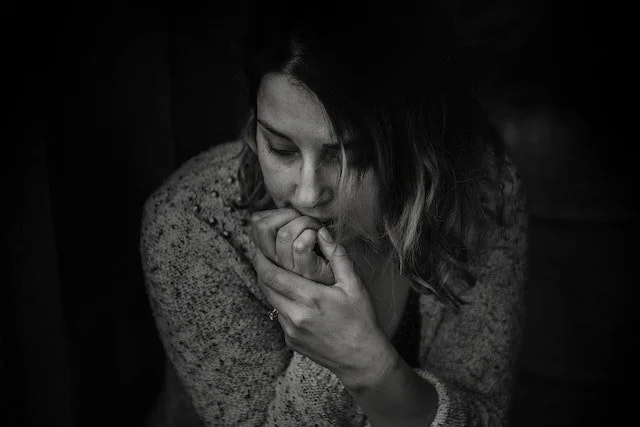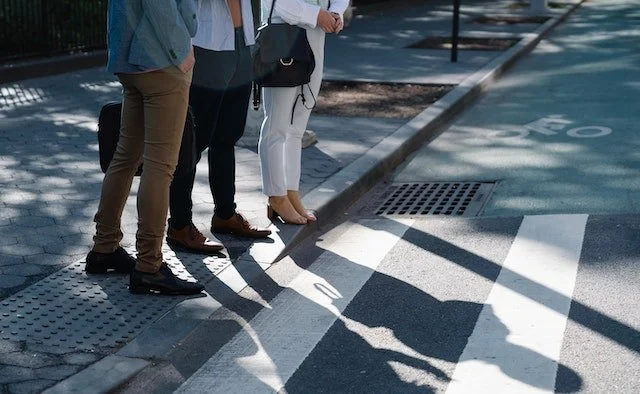
Trauma Therapy
Is Trauma Interfering With Your Daily Life?
Do you feel powerless to move on from the pain of the past? Has trauma made you feel unsafe in your own body? Are you dealing with nightmares, flashbacks, and anxiety attacks?
Trauma can hijack your emotions and make you react as if you were right in the bad circumstances of your trauma. You might experience PTSD symptoms and refuse to go places that remind you of your trauma. Perhaps you avoid any high-sensory events and withdraw from social situations. Over time, these avoidance behaviors could lead to profound isolation and loneliness. You probably wish there was someone out there who could help you carry the weight of your trauma.
You Might Feel Angry At God And Confused About Why Your Trauma Happened
After something terrible happens, it’s normal to ask “Why me? How could God allow this to happen? What did I do to deserve this?” Sometimes you might bargain with the past, wondering why you couldn’t have suffered from something else besides your trauma.
If you wish you could stop operating in the past, I encourage you to connect with me. By incorporating psychology with a Christian approach to trauma and PTSD counseling, I believe I can help you process your emotional pain and experience healing in your mind and body.
Trauma Happens When Memories Are Too Overwhelming To Digest
When a traumatizing situation happens, your nervous system gets stuck. The part of the brain responsible for storing memories feels too overwhelmed to “digest” your experience. As a result, the traumatic event doesn’t feel like a memory—it feels like it’s happening right now. Now, when you see, hear, taste, or smell something that reminds you of your trauma, you feel transported back into the past. Your nervous system either fights back against the memory, flees from it, or freezes up.
Believe it or not, “fight, flight, or freeze” mode is actually your brain’s way of trying to protect you. Your nervous system is trying to signal that you’re in danger. But when this protective tendency controls your life, that’s a sign that you might be struggling with trauma. This can happen if you’ve suffered childhood abuse, neglect, rape, bullying, grief and loss, and many other painful experiences.
Our Fast-Paced Society Makes Trauma Worse By Encouraging Us To Ignore Our Bodies
Trauma is an increasing problem in a world that teaches us to go, go and go. We’re not taught to slow down and listen to our bodies. Instead of seeking calmness and peace, we’re always looking for the next big dopamine hit. As a result, so many of us live with unprocessed trauma in our lives.
Trauma is stored in the body and that’s why it’s so difficult to work through. You can’t just think your way out of it or overcome it with a few relaxation strategies. Trauma therapy is a chance to go deeper and get to the root cause of your emotional wounds, allowing for long-lasting healing.
Therapy Can Help You Release Your Trauma And Find Healing In Your Mind And Body
Let’s face it: it’s not always easy to share your story. Lots of people don’t know how to respond when you tell them you’ve been traumatized. In cases of abuse, they might even leap to the abuser’s defense and downplay what happened to you. As a trauma counselor, you can share your story safely with me. I will not be shocked or minimize your experience. I am here to help you feel seen, heard, accepted, and understood.
What To Expect In Trauma Therapy Sessions
As we work together, you and I will explore how the body stores trauma and how to release your emotional reactions to it. I want to normalize your experience so that you understand that your trauma reactions are normal and there’s nothing wrong with you. When you experience a traumatic event, your brain literally cannot handle it. Yet God has amazingly created your brain so that there is a backup plan—a part of the brain that hides or blocks the experiences you can’t process. This part of the brain is called the amygdala.
While the amygdala may serve a protective function—temporarily shielding you from the pain of trauma—no memory should stay there forever. After all, it’s impossible to process memories that are blocked and hidden. In therapy, I will help you find ways to get around these emotional blockages so that you can fully heal from trauma. We will work on positive coping skills that help you reduce your stress, increase your self-awareness, and become more in tune with your body.
Tailoring Your Trauma Treatment Plan
There are so many different approaches that can help with emotional relief. But when it comes to trauma, talk therapy can only do so much good. Many of my clients tell me that they’ve tried talking through their trauma and it still sticks like glue. As a result, I often use an approach called Brainspotting, which does not require you to discuss your experience.
Brainspotting uses your visual field to process trauma that is stored in the body. Your eyes are like a filing cabinet that knows where trauma is kept, so your eyes will naturally lead us to where the pain is held. Brainspotting gives you a chance to slow down and notice what’s going on in your body when stress reactions are happening. It can help you remove the emotional impact of your trauma, allowing you to eventually recall what happened without feeling overwhelmed.
No matter how hopeless you feel, it is possible to retrain your body’s response to trauma and detach from painful emotions. Instead of viewing yourself as defined by trauma, therapy can help you understand that the problem is not you, but the external events in your life. When you understand this truth, mountains can move and the past can stop exerting so much influence over the present.
You May Have Some Concerns About Trauma and PTSD Therapy…
What if I have trouble remembering or verbalizing my story?
With brainspotting, you don’t have to worry about verbalizing your story. The eye movement exercises of this approach naturally lead to where the trauma is stored, so there is no need to perfectly recall all the events. Trauma is stored in the unconscious and brainspotting is designed to access the unconscious.
What if trauma therapy is too much and makes me feel even worse?
You get to decide how much is too much. The ball’s in your court here—we will only process what you feel comfortable processing. If you ever feel overwhelmed, we can slow down and focus on helping you relax and stay grounded. This way, you don’t have to worry about therapy making your trauma worse.
How do I know that I can trust you with my story?
Trauma counseling is 100 percent confidential—no one else is going to find out what you share here. My goal is to be someone you can trust and depend on through thick and thin. At the same time, I believe trust is something that is earned—it can’t be magically established overnight. I want to earn your trust and I hope you’ll give me the chance to try. The good news is you’re never “stuck” with your therapist—if you decide that we’re not a good fit, I can always help you find someone else who helps with trauma. After all, I want what’s best for you!

Your Life Story Is So Much More Than Your Trauma
You are beautifully and wonderfully made and you are not defined by your trauma. If you want to begin the process of healing from the past, you can use the contact page or call 951-757-9781 to schedule a free, 15-minute phone consultation.









